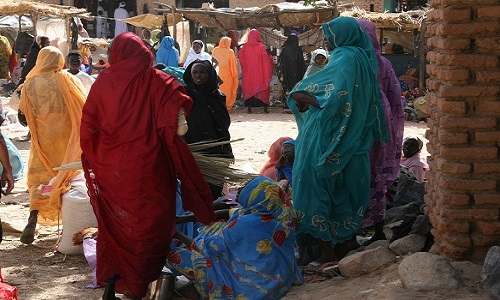13,495 total views, 1 views today
The Hausa people dominate the Northern Part of Nigeria and the most populous inhabitants in the Country. They are mostly Muslims and they speak the Hausa Dialect. Traditional marriage in Hausa land is less expensive than that of the Igbos and Yoruba cultures. The processes are also not stressful compared to the two other regions in Nigeria. Their marriage system is based on the Islamic or Sharia law.
After a man has seen a woman he likes and want to marry, he is not allowed to have any form of physical contact with her but will first inform his parents about his intention. After this, the wedding process starts.
Stage 1: The “Na gani ina” Stage
Here, the grooms with his male friends and kinsmen visit the bride’s family house to make their intention known. They also go with gifts like kolanut, fruits, sweet, salts, calabash etc. The acceptance of these gifts implies that their proposal has been accepted by the bride’s family and vice versa. After the acceptance of their proposal, the groom will be allowed to see the future bride.
Stage 2: The Courtship Period
After this stage, the prospective couple is allowed to see each other but with no intimacy. Restriction of romance or any sexual activity is to prevent pre-marital sexual activities. If after knowing each other strengths and weaknesses, the bride has the right to call off the wedding plans if she is not satisfied with the man’s behaviours. On, the other hand, if the bride wants the man, she will inform her parents.
Stage 3: The “Gaisuwais” and “Sarana” Stage
After the approval of the groom by the bride, the bride’s parents will have to convey the good news to the parents of the groom (Gaisuwa). Both families will then have a meeting to discuss the bride price and the wedding date. The process of setting the weeding date is known as “Sarana”. The intending couple is being engaged during this stage. The bride-price is always a low amount because it is believed that the low amount of bride-price attracts greater reward from Allah. It starts from the minimum payment known as the Rubu Dinar” (quarter kilogram of gold piece) to any amount the groom’s family can afford to pay.
Stage 4: The Wedding (Fatihah)
The dowry is paid on the Fatihah, that is, the wedding day, where the couple and their families are joined together. The bride-price, which is known as “Sadaki” is paid on this day. The payment of the dowry is the duty of the men as women are not expected to be outside. During the payment of the bride-price, the bride will be indoor with older women. These women have the responsibilities of beautifying the bride by adorning her with jewelries, perfume and Henna, also known as the Lalei. This process is known as “Kunshi” which can be likened to what is now known as bridal shower.
Stage 5: The Reception (Walimah)
Receptions where drinks and foods are being served are called Walimah in the Islamic religion. During the traditional marriage, there will be a grand reception. Here, the bride will be brought out and she will be counseled and advised by the old and married women, after which she will be followed to her husband’s house. Walimah is a day ceremony as people, well wishers and villagers are being served foods and drinks from morning till night fall. The house or settlement of the newly-wed is a joint effort from both parents. The groom and his families will buy the house while the furnishing of the house will be done by the bride’s families.
